第101章 CHAPTER IX.(3)
The King received me with condescension; all eyes were directed towards me, each welcomed me to my country. This moved me the more as it was remarked by the foreign ministers, who asked who that Austrian officer could be who was received with so much affection and such evident joy in Berlin. The gracious monarch himself gave tokens of pleasure at beholding me thus surrounded. Among the rest came the worthy General Prittwitz, who said aloud -"This is the gentleman who might have ruined me to effect his own deliverance."Confused at so public a declaration, I desired him to expound this riddle; and he added -"I was obliged to be one of your guards on your unfortunate journey from Dantzic to Magdeburg, in 1754, when I was a lieutenant. On the road I continued alone with you in an open carriage. This gave you an opportunity to escape, but you forbore. I afterwards saw the danger to which I had exposed myself. Had you been less noble-minded, had such a prisoner escaped through my negligence, I had certainly been ruined. The King believed you alike dangerous and deserving of punishment. I here acknowledge you as my saviour, and am in gratitude your friend." I knew not that the generous man, who wished me so well, was the present General Prittwitz. That he should himself remind me of this incident does him the greater honour.
Having been introduced at court, I thought it necessary to observe ceremonies, and was presented by the Imperial ambassador, Prince Reuss, to all foreign ministers, and such families as are in the habit of admitting such visits. I was received by the Prince Royal, the reigning Queen, the Queen-Dowager, and the royal family in their various places, with favour never to be forgotten. His Royal Highness Prince Henry invited me to a private audience, continued long in conversation with me, promised me his future protection, admitted me to his private concerts, and sometimes made me sup at court.
A like reception I experienced in the palace of Prince Ferdinand of Brunswick, where I frequently dined and supped. His princess took delight in hearing my narratives, and loaded me with favour.
Prince Ferdinand's mode of educating children is exemplary. The sons are instructed in the soldier's duties, their bodies are inured to the inclemencies of weather; they are taught to ride, to swim, and are steeled to all the fatigue of war. Their hearts are formed for friendship, which they cannot fail to attain. Happy the nation in defence of which they are to act!
How ridiculous these their ROYAL HIGHNESSES appear who, though born to rule, are not deserving to be the lackeys to the least of those whom they treat with contempt; and yet who swell, strut, stride, and contemplate themselves as creatures essentially different by nature, and of a superior rank in the scale of beings, though, in reality, their minds are of the lowest, the meanest class.
Happy the state whose prince is impressed with a sense that the people are not his property, but he the property of the people! Aprince beloved by his people will ever render a nation more happy those he whose only wish is to inspire fear.
The pleasure I received at Berlin was great indeed. When I went to court, the citizens crowded to see me, and when anyone among them said, "That is Trenck," the rest would cry, "Welcome once more to your country," while many would reach me their hands, with the tears standing in their eyes. Frequent were the scenes I experienced of this kind. No malefactor would have been so received. It was the reward of innocence; this reward was bestowed throughout the Prussian territories.
Oh world, ill-judging world, deceived by show! Dost thou not blindly follow the opinion of the prince, be he severe, arbitrary, or just? Thy censure and thy praise equally originate in common report. In Magdeburg I lay, chained to the wall, ten years, sighing in wretchedness, every calamity of hunger, cold, nakedness, and contempt. And wherefore? Because the King, deceived by slanderers, pronounced me worthy of punishment. Because a wise King mistook me, and treated me with barbarity. Because a prudent King knew he had done wrong, yet would not have it so supposed. So was his heart turned to stone; nay, opposed by manly fortitude, was enraged to cruelty. Most men were convinced I was an innocent sufferer; "Yet did they all cry out the more, saying, let him be crucified!" My relations were ashamed to hear my name. My sister was barbarously treated because she assisted me in my misfortunes. No man durst avow himself my friend, durst own I merited compassion; or, much less, that the infallible King had erred. I was the most despised, forlorn man on earth; and when thus put on the rack, had I there expired, my epitaph would have been, "Here lies the traitor, Trenck."Frederic is dead, and the scene is changed; another monarch has ascended the throne, and the grub has changed to a beautiful butterfly! The witnesses to all I have asserted are still living, loudly now proclaim the truth, and embrace me with heart-felt affection.
Does the worth of a man depend upon his actions? his reward or punishment upon his virtue? In arbitrary states, certainly not.
They depend on the breath of a king! Frederic was the most penetrating prince of his age, but the most obstinate also. A vice dreadful to those whom he selected as victims, who must be sacrificed to the promoting of his arbitrary views.